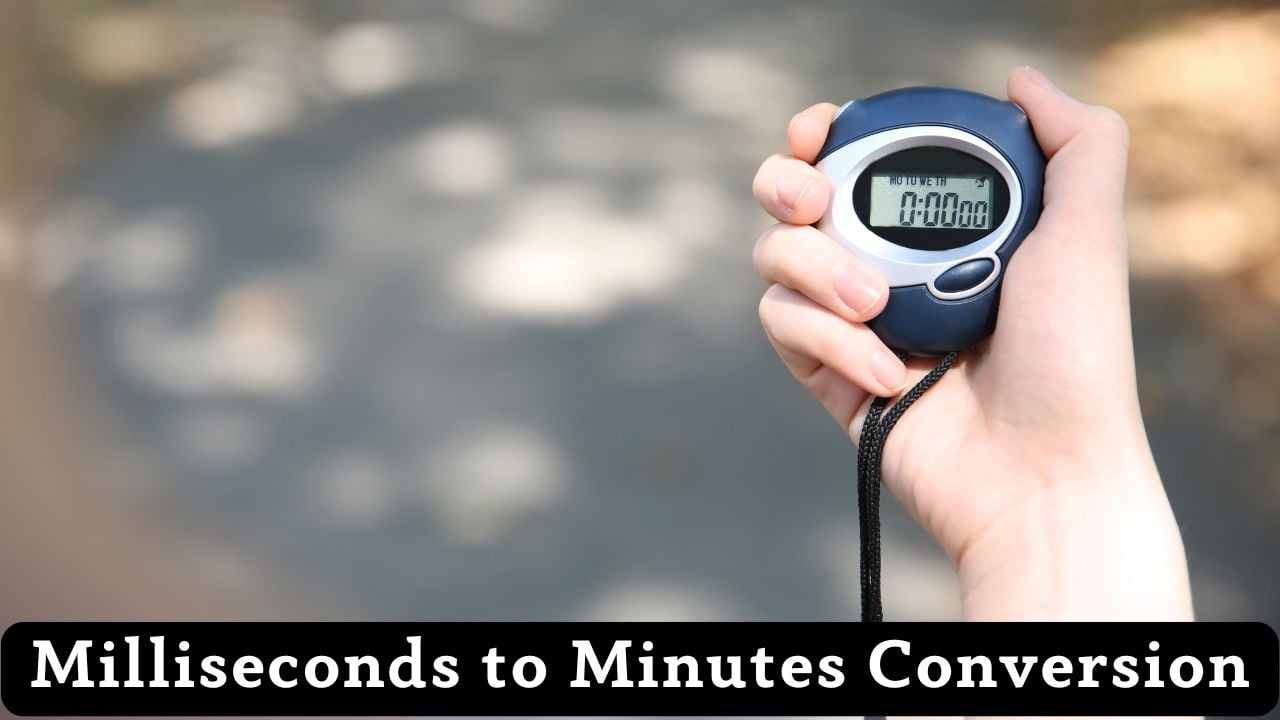Milliseconds to Minutes Calculator
Convert milliseconds to minutes and vice versa with instant results, detailed breakdowns, and quick presets.

Milliseconds to Minutes: The Essential Guide
There are exactly 60,000 milliseconds in one minute. This relationship is crucial in programming, science, and everyday life. Converting between milliseconds and minutes enables precise timing, animation, and technical applications. Explore formulas, quick tables, and real-world uses below.
The Conversion Formula
Minutes = Milliseconds ÷ 60,000
Milliseconds = Minutes × 60,000
1 minute = 60,000 milliseconds. This is a fixed, universal relationship in all timekeeping systems.
Example: 2 minutes × 60,000 = 120,000 milliseconds, or 180,000 milliseconds ÷ 60,000 = 3 minutes
Milliseconds & Minutes in Practice
1 Millisecond: 0.001 seconds (1/1,000 of a second)
1 Minute: 60,000 milliseconds
Applications: Animation timing, stopwatch precision, video/audio sync, network latency, scientific measurement
Milliseconds are used for high-precision timing, while minutes are the standard for most time displays.
Quick Reference Table: Milliseconds to Minutes
| Milliseconds | Seconds | Minutes | Common Usage |
|---|---|---|---|
| 1,000 | 1 | 0.017 | One second |
| 60,000 | 60 | 1.000 | One minute |
| 300,000 | 300 | 5.000 | Five minutes |
| 600,000 | 600 | 10.000 | Ten minutes |
| 3,600,000 | 3,600 | 60.000 | One hour |
Frequently Asked Questions
How do you convert milliseconds to minutes?
Divide the number of milliseconds by 60,000. For example, 120,000 milliseconds ÷ 60,000 = 2 minutes.
Why are there 60,000 milliseconds in a minute?
The metric system defines 1 minute as 60 seconds, and each second as 1,000 milliseconds. So, 60 × 1,000 = 60,000 milliseconds in a minute.
Where are milliseconds-to-minutes conversions used?
In programming (timers, animations), science (experiments), sports (stopwatches), and technology (network latency, video/audio sync).
Is the conversion always exact?
Yes, 60,000 milliseconds always equals 1 minute. The relationship is fixed and universal.
How do you handle decimal minutes?
Decimal minutes (e.g., 2.5 minutes) are converted by multiplying by 60,000. For example, 2.5 minutes × 60,000 = 150,000 milliseconds.
What is a millisecond used for?
Milliseconds are used for measuring very short time intervals, such as animation frames, network ping, and scientific experiments.
